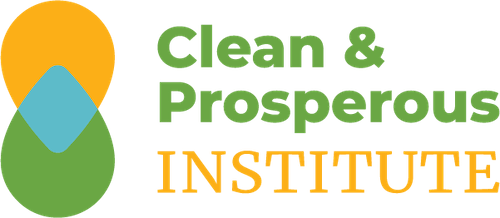Today’s anatomy lesson
 Kate Gordon, Senior Advisor to U.S. Secretary of Energy Jennifer Granholm, headlined our Future of Carbon Policy Forum on January 5th, addressing our capacity-crowd on the topic of “What the IIJA and IRA Means to Washington” (state, that is).
Kate Gordon, Senior Advisor to U.S. Secretary of Energy Jennifer Granholm, headlined our Future of Carbon Policy Forum on January 5th, addressing our capacity-crowd on the topic of “What the IIJA and IRA Means to Washington” (state, that is).
As our Legislature – currently in session – considers investments toward powering up a clean economy, it can leverage funds from the Biden Administration’s Department of Energy, and from the Infrastructure Investment & Jobs Act (IIJA), Inflation Reduction Act (IRA), and CHIPS & Science Act (CHIPS stands for “Creating Helpful Incentives to Produce Semiconductors”). Gordon likened the IIJA to the backbone of a clean economy, making “foundational investments in transportation, energy transmission, EV charging, broadband, grid reliability and resilience, clean energy demonstrations, and long-term investments in workforce and supply chain”. She called the IRA the lungs, giving oxygen to the economy with “tax credits to bring clean energy projects to speed and scale, major new loan authority, and a $27 billion Greenhouse Gas Reduction Fund”. And the brains? That’s the CHIPS & Science Act, which provides roughly $280 billion in new funding to boost domestic research and manufacturing of semiconductors in the United States. (Did you know? Washington ranks among the Top 10 states for semiconductor jobs and manufacturing facilities.)
The Department of Energy’s focus is on “place-based economic development anchors”. That is, investments in projects that can anchor broader economic growth, while delivering on five key priorities:

Click here to see Kate Gordon’s full slide deck.
Gordon described a “systems approach”, where Federal departments work in partnership with states, aligning on project objectives, locations, and budgets. Toward that end, Gordon highlighted the new Community Benefits Plan (CBP) requirement of all Department of Energy funding agreements. The CBP outlines how the applicant intends to achieve DOE’s priority areas of Justice40, Diversity, Equity, Access & Inclusion (DEIA) & Quality Jobs initiatives.
This “place-based, community-centered” systems approach lines up well with the direction Washington state is moving on climate policy and clean energy investments. As the legislative session continues, we’ll encourage lawmakers to add state-funded muscle to the body of clean economy programs coming from D.C.

